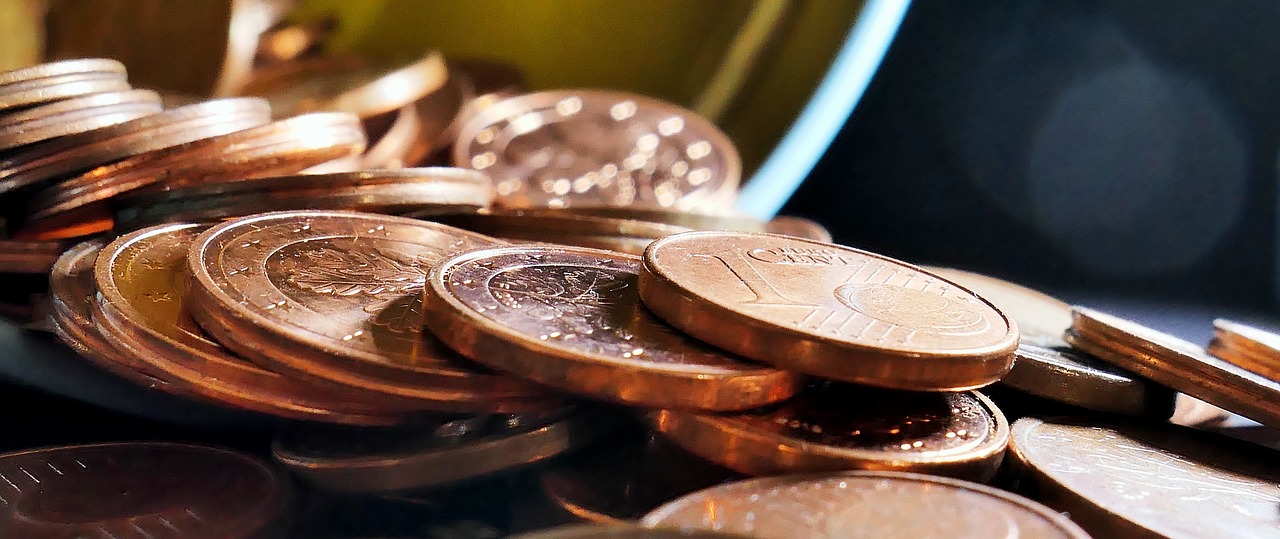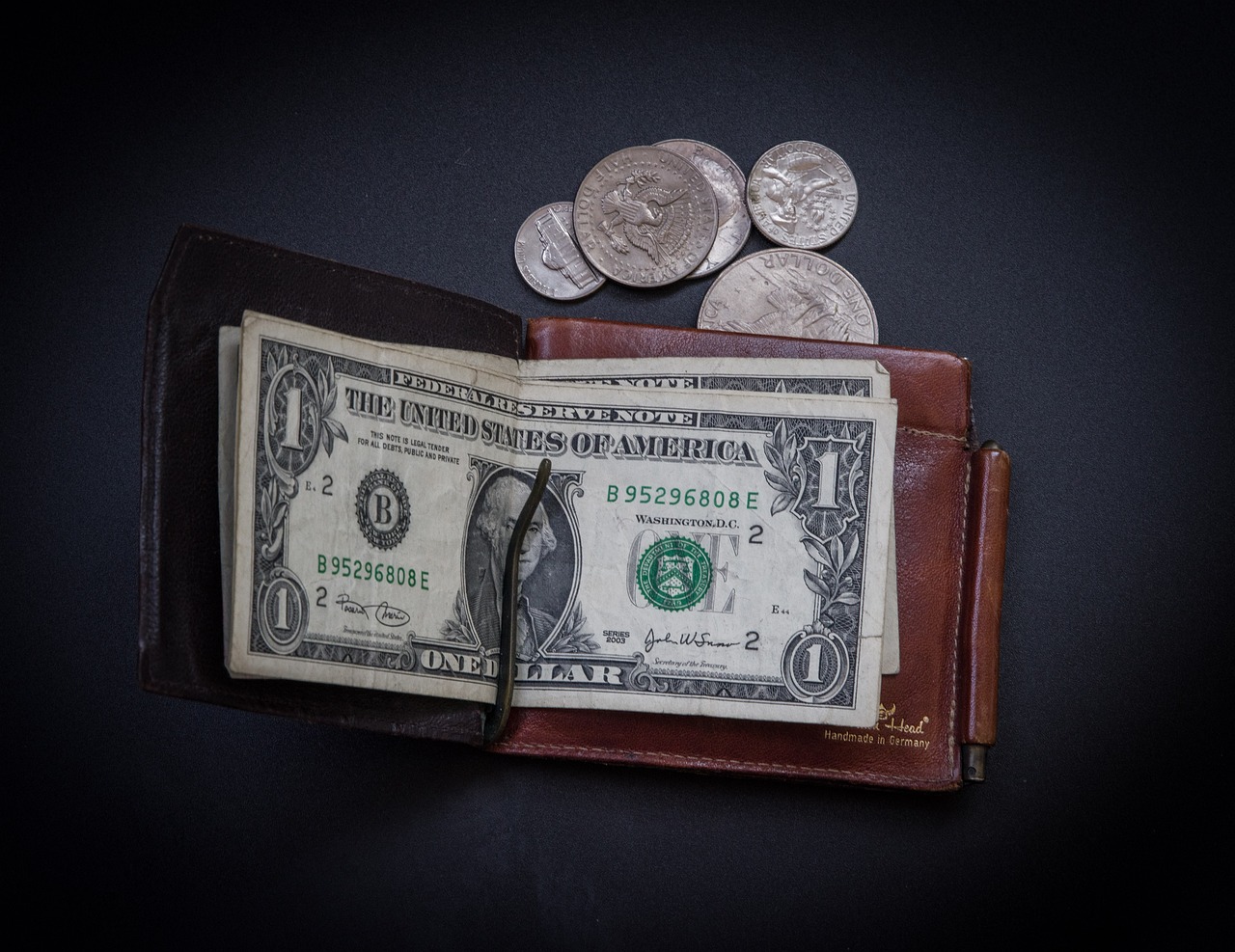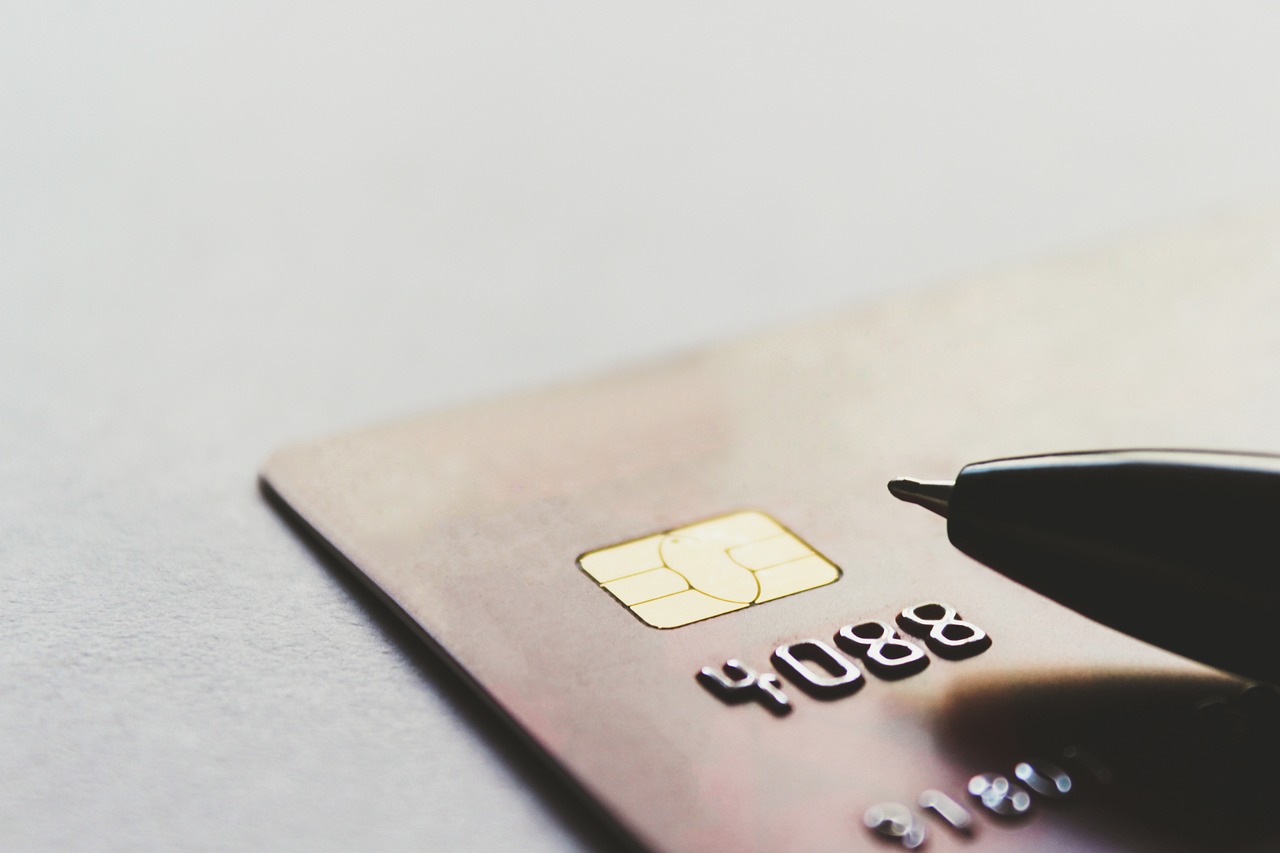The Future of Payment Systems - The Role of Wallets
The landscape of payment systems is undergoing a seismic shift, and at the heart of this transformation are digital wallets. Gone are the days when carrying cash was the norm; today, consumers are embracing the convenience and efficiency that digital wallets offer. Imagine being able to pay for your morning coffee, book a flight, and even split a dinner bill with friends, all from your smartphone. This article explores the evolution of payment systems, focusing on the profound impact digital wallets have on transactions, security, and consumer behavior in the modern economy.
Digital wallets have gained immense popularity, providing consumers with a convenient and secure way to make transactions. Their rise in the financial landscape can be attributed to several factors. First and foremost, the rapid advancement of technology has made smartphones ubiquitous, allowing users to carry their wallets in their pockets. Additionally, the increasing acceptance of contactless payments has made transactions faster and more efficient. Convenience is another driving force; with just a few taps on a screen, users can complete purchases without fumbling for cash or cards. Furthermore, the ongoing pandemic has accelerated the shift towards digital payment methods, as consumers seek to minimize physical contact.
As digital wallets become mainstream, security concerns inevitably arise. Consumers want to know that their financial information is safe. Thankfully, modern digital wallets are equipped with advanced security features designed to protect users. For instance, many wallets utilize encryption to safeguard sensitive data, ensuring that personal information remains confidential. Additionally, features like biometric authentication (fingerprint or facial recognition) add an extra layer of security. These measures not only mitigate potential risks but also enhance consumer confidence in using digital wallets for everyday transactions.
Digital wallets are revolutionizing e-commerce by streamlining payment processes. Online retailers are increasingly adopting wallet options to provide customers with a seamless shopping experience. With digital wallets, the checkout process is simplified: customers can complete transactions in seconds, reducing cart abandonment rates significantly. This integration not only benefits consumers but also boosts sales for retailers. A recent study showed that merchants who accept digital wallets see an increase in conversion rates by up to 20%. It’s a win-win situation!
The adoption of digital wallets is influencing consumer spending habits in profound ways. The convenience and instant access to funds provided by wallets encourage consumers to make purchases they might have otherwise postponed. Instead of waiting until payday, users can buy what they want, when they want, leading to increased overall spending. Moreover, digital wallets often come with loyalty programs and rewards, enticing users to choose them over traditional payment methods. This shift in behavior raises questions: Are we becoming more impulsive shoppers? Or is this simply a reflection of our fast-paced lifestyles?
Digital wallets are not limited to one region; their adoption is a global phenomenon. In countries like China, mobile payment systems such as Alipay and WeChat Pay dominate the market, with millions of users relying on these services daily. In contrast, regions like Europe and North America are catching up, with companies like PayPal and Apple Pay leading the charge. Cultural factors also play a significant role in wallet usage. For instance, in cultures that prioritize cash transactions, the transition to digital wallets may take longer. However, as technology continues to evolve, it’s clear that digital wallets are here to stay.
The future of digital wallets promises exciting innovations. Emerging technologies such as blockchain and artificial intelligence are set to enhance wallet functionalities and user experiences. Blockchain technology can provide greater transparency and security in transactions, while AI can personalize user experiences by analyzing spending habits and suggesting tailored offers. Imagine a wallet that not only holds your payment information but also learns your preferences over time, making shopping easier and more enjoyable!
Despite their growth, digital wallets face several challenges. Regulatory issues can vary significantly from one country to another, creating hurdles for wallet providers looking to expand globally. Additionally, competition among wallet services is fierce, leading to a constant race for innovation. Consumer trust is another critical factor; as digital wallets become more prevalent, users must feel confident that their information is secure. Building that trust will be essential for the long-term success of digital wallets.
Cryptocurrencies are increasingly integrated into digital wallets, offering users the ability to hold and transact in digital currencies alongside traditional payment methods. This integration raises intriguing possibilities for the future of payments. As more people become familiar with cryptocurrencies, wallets that accommodate these transactions may gain a competitive edge. The implications for traditional payment systems are profound, potentially leading to a more decentralized financial ecosystem.
The future of payments is evolving with digital wallets at the forefront. As technology advances and consumer preferences shift, we can expect to see even more innovations in the wallet space. From enhanced security features to the integration of cryptocurrencies, the trajectory of payment systems is poised for exciting changes. Digital wallets are not just a trend; they are a fundamental part of our financial future, reshaping how we conduct transactions and interact with money.
- What is a digital wallet? A digital wallet is a software application that allows users to store payment information and make transactions electronically.
- Are digital wallets safe to use? Yes, most digital wallets use advanced security features such as encryption and biometric authentication to protect users' information.
- Can I use digital wallets for online shopping? Absolutely! Many online retailers accept digital wallets, making the checkout process faster and more convenient.
- What are the benefits of using a digital wallet? Benefits include convenience, enhanced security, and often access to rewards and loyalty programs.

The Rise of Digital Wallets
In recent years, the financial landscape has undergone a **remarkable transformation**, and at the heart of this change is the rise of digital wallets. These innovative tools have redefined how we conduct transactions, making payments faster, easier, and more secure than ever before. But what exactly has fueled this surge in popularity? Let’s dive into the key factors that have contributed to the widespread adoption of digital wallets.
First and foremost, the **convenience** offered by digital wallets is unparalleled. Imagine having all your payment methods—credit cards, debit cards, and even loyalty cards—consolidated into a single app on your smartphone. With just a few taps, you can complete your purchase without fumbling through your wallet or searching for your cards. This seamless experience is particularly appealing in today’s fast-paced world, where time is of the essence.
Moreover, the proliferation of smartphones has played a crucial role in the rise of digital wallets. As more people gain access to smartphones, the potential user base for these wallets expands exponentially. According to recent statistics, over 3 billion people worldwide own a smartphone, and many of them are using it for financial transactions. This shift has made digital wallets not just a novelty but a **necessity** for many consumers.
Another significant factor is the growing acceptance of digital wallets by merchants and retailers. Businesses, both large and small, are increasingly integrating digital wallet options into their payment systems. This trend is not only about keeping up with technology but also about meeting consumer demand. Customers now expect to have multiple payment options available, and digital wallets are often at the top of their list. In fact, a survey indicated that over 50% of consumers prefer using digital wallets over traditional payment methods.
Furthermore, the rise of e-commerce has been a game changer for digital wallets. As online shopping continues to gain traction, digital wallets provide a secure and efficient way to complete transactions without the need for physical cash or cards. With the click of a button, consumers can make purchases from the comfort of their homes, and digital wallets enhance this experience by simplifying the checkout process.
Security is another critical aspect that has propelled digital wallets into the spotlight. Many consumers are concerned about the safety of their financial information, especially in an age where data breaches are becoming more common. Digital wallets employ advanced encryption technologies and biometric authentication methods, such as fingerprint or facial recognition, to protect users' data. This focus on security not only reassures consumers but also builds trust in digital payment systems.
In summary, the rise of digital wallets can be attributed to a combination of convenience, technological advancements, increased merchant acceptance, the growth of e-commerce, and enhanced security measures. As we continue to embrace digital solutions in our daily lives, it’s clear that digital wallets are not just a passing trend; they are here to stay, reshaping the way we think about money and transactions.
- What are digital wallets? Digital wallets are applications that allow users to store payment information and make transactions electronically.
- Are digital wallets safe to use? Yes, digital wallets use advanced security features such as encryption and biometric authentication to protect user data.
- Can I use digital wallets for online shopping? Absolutely! Digital wallets are widely accepted by e-commerce platforms, making online shopping easier.
- Do I need an internet connection to use a digital wallet? Yes, most digital wallets require an internet connection to process transactions.

Security Features of Wallets
As digital wallets continue to gain traction in our daily lives, the importance of security cannot be overstated. With more people opting for cashless transactions, the need for robust security features is paramount. Digital wallets employ a combination of advanced technologies and practices to safeguard users' financial information. This is akin to having a virtual vault that not only keeps your cash safe but also ensures that your personal data is protected from prying eyes.
One of the primary security features of digital wallets is encryption. This process transforms your sensitive information into a code that is nearly impossible to crack. Imagine sending a secret message that only the intended recipient can decode. Similarly, encryption ensures that your payment details remain confidential during transactions. Additionally, many wallets utilize tokenization, which replaces sensitive information with a unique identifier or 'token'. This means that even if a hacker intercepts your data, they would only obtain a useless token rather than your actual financial details.
Another layer of security comes from multi-factor authentication (MFA). This feature requires users to verify their identity through multiple methods before they can access their wallet. For instance, you might need to enter a password and then confirm your identity with a fingerprint or a one-time code sent to your phone. It's like having two locks on your door; it significantly reduces the chances of unauthorized access.
Furthermore, many digital wallets incorporate biometric authentication, such as fingerprint scanning or facial recognition. This technology not only enhances security but also adds a layer of convenience. After all, who wants to remember complex passwords when you can simply use your fingerprint? This method is gaining popularity because it provides a seamless user experience while ensuring that only the rightful owner can access the wallet.
To illustrate the effectiveness of these security features, consider the following table that compares various digital wallets based on their security measures:
| Digital Wallet | Encryption | Tokenization | Multi-Factor Authentication | Biometric Authentication |
|---|---|---|---|---|
| Wallet A | Yes | Yes | Yes | Yes |
| Wallet B | Yes | No | Yes | No |
| Wallet C | Yes | Yes | No | Yes |
Moreover, the potential for real-time fraud detection is another exciting feature of digital wallets. Many of these platforms use machine learning algorithms to monitor transactions as they occur. If a transaction appears suspicious—say, a purchase made in a different country while you’re still at home—the system can flag it for review. This proactive approach to security is like having a security guard watching over your finances 24/7.
Despite these impressive security measures, users must also take personal responsibility. Regularly updating passwords, enabling notifications for transactions, and being cautious about sharing personal information are crucial steps in maintaining wallet security. Think of it as locking your car doors and not leaving valuables in plain sight. Digital wallets are designed to be secure, but user vigilance is the final line of defense.
In conclusion, the security features of digital wallets are continually evolving to meet the increasing demands of users. With encryption, tokenization, multi-factor authentication, and biometric options, these wallets provide a comprehensive security framework that makes digital transactions safer than ever. As we embrace this cashless future, understanding these features empowers users to make informed choices about their financial security.
- What should I do if I suspect my wallet has been compromised? Immediately change your password, enable multi-factor authentication, and contact your wallet provider for further assistance.
- Are digital wallets safe for large transactions? Yes, as long as you are using a reputable wallet with strong security features in place.
- Can I use my digital wallet internationally? Most digital wallets support international transactions, but check with your provider for any restrictions or fees.

Integration with E-commerce
In today's fast-paced digital world, the integration of digital wallets with e-commerce platforms has transformed the way we shop online. Imagine being able to purchase your favorite items with just a few taps on your smartphone, without the hassle of entering credit card details every time. This seamless experience is not just a luxury; it's becoming the standard. The rise of digital wallets has led to a significant shift in how consumers approach online transactions, making shopping not only easier but also more secure.
One of the most compelling aspects of digital wallets is their ability to streamline the payment process. By storing multiple payment methods in one secure location, these wallets eliminate the need for shoppers to sift through their wallets or bags for that elusive credit card. Instead, consumers can simply select their preferred payment method and complete the transaction in seconds. This efficiency is crucial in an era where time is money, and every second counts. As a result, e-commerce businesses are witnessing higher conversion rates and reduced cart abandonment, which is a win-win for both retailers and customers.
Moreover, the integration of digital wallets into e-commerce platforms has opened up new avenues for customer engagement. Retailers can now offer personalized promotions and loyalty rewards directly through these wallets, creating a more tailored shopping experience. For instance, a customer who frequently shops at a specific store may receive exclusive discounts or cashback offers directly in their digital wallet. This targeted approach not only enhances customer satisfaction but also encourages repeat purchases, ultimately driving revenue growth for businesses.
Another significant benefit of digital wallets in e-commerce is the enhanced security they provide. Traditional payment methods often expose consumers to risks such as fraud and identity theft. However, digital wallets utilize advanced security features like encryption, biometric authentication, and tokenization to protect sensitive information. For example, when a purchase is made, the actual card details are not shared with the merchant, reducing the risk of data breaches. This level of security fosters trust among consumers, making them more likely to engage in online shopping.
As we look to the future, the integration of digital wallets with e-commerce is expected to grow even more robust. Retailers are increasingly adopting these technologies, recognizing the need to stay competitive in a crowded market. According to a recent study, over 50% of consumers prefer using digital wallets for online purchases, and this trend is only set to rise. As more businesses optimize their platforms for digital wallets, we can anticipate a more interconnected and user-friendly shopping experience that meets the demands of the modern consumer.
In conclusion, the integration of digital wallets into e-commerce is reshaping the landscape of online shopping. With their ability to streamline transactions, enhance security, and foster customer loyalty, digital wallets are not just a passing trend; they are a fundamental part of the future of commerce. As technology continues to evolve, we can expect even more innovative features that will further enhance the shopping experience, making it more convenient and secure for everyone involved.
- What are digital wallets? Digital wallets are electronic applications that allow users to store payment information and make transactions using their smartphones or computers.
- How do digital wallets enhance e-commerce? They streamline the payment process, improve security, and enable personalized marketing, leading to higher customer satisfaction and conversion rates.
- Are digital wallets safe to use? Yes, digital wallets utilize advanced security measures like encryption and biometric authentication to protect users' financial information.
- Can I use digital wallets for international purchases? Many digital wallets support international transactions, but it depends on the specific wallet and the retailer's policies.

Impact on Consumer Behavior
The advent of digital wallets has undeniably transformed the way consumers approach their spending habits. Imagine walking into a store, and instead of fumbling for cash or swiping a card, you simply tap your smartphone and voilà—purchase completed! This level of convenience has fundamentally shifted consumer expectations and behaviors, making transactions not only faster but also more intuitive.
One of the most significant impacts of digital wallets is the instant access to funds. Consumers no longer have to worry about carrying cash or ensuring their cards are with them. This ease of access can lead to an increase in impulsive purchases. For instance, when a consumer sees a product they like, the decision to buy becomes almost instantaneous. With just a few taps, they can complete the transaction without a second thought. This phenomenon raises the question: are we spending more simply because we can?
Moreover, digital wallets often come with features that promote spending. Many wallets offer rewards programs, cashback incentives, and personalized deals that encourage users to spend more. This creates a psychological effect where consumers feel they are getting a good deal, even if they are spending more than they typically would. A study revealed that consumers using digital wallets tend to spend approximately 20% more than those using traditional payment methods. This statistic highlights a crucial shift in consumer behavior driven by the allure of rewards and convenience.
Furthermore, the integration of digital wallets into everyday life has fostered a culture of instant gratification. With just a few clicks, consumers can purchase anything from groceries to luxury items, all from the comfort of their homes or on the go. This shift has not only changed what we buy but also how we buy it. The traditional shopping experience, which often involved planning and budgeting, has been replaced with a more spontaneous approach. As a result, consumers are more likely to prioritize convenience over cost, leading to a significant change in spending patterns.
Additionally, the rise of digital wallets has influenced the way consumers perceive value. With the ability to track spending and manage budgets directly through their wallets, users are becoming more aware of their financial habits. This awareness can lead to more informed purchasing decisions. For instance, a consumer might notice they are spending excessively on coffee and decide to cut back. Digital wallets often provide insights and analytics that help users understand their spending habits better.
In conclusion, the impact of digital wallets on consumer behavior is profound and multifaceted. They not only enhance convenience but also alter spending patterns, encourage impulsive purchases, and foster a culture of instant gratification. As we continue to embrace this technology, it’s essential to consider how these changes will shape our financial future and consumer landscape.
- How do digital wallets change consumer spending habits?
Digital wallets make transactions easier and faster, often leading to increased spending and impulsive purchases. - Are digital wallets safe to use?
Yes, most digital wallets come with advanced security features, but users should always take precautions to protect their information. - Can digital wallets help me manage my budget?
Absolutely! Many digital wallets offer insights and analytics that help users track their spending and manage their budgets effectively.

Global Adoption Trends
The world is becoming increasingly interconnected, and the rise of digital wallets is a testament to that trend. Digital wallets are not just a fad; they are transforming how we think about money and transactions across the globe. From bustling metropolises to quiet towns, these wallets are making their mark in various ways. But what exactly is driving this global adoption? Let’s dive into the factors influencing this phenomenon.
One of the most significant factors contributing to the widespread adoption of digital wallets is the increasing penetration of smartphones. In many regions, particularly in developing countries, mobile phones are often the primary means of accessing the internet. This trend has led to a surge in mobile payment solutions, creating a perfect storm for digital wallets to thrive. According to a recent study, over 80% of the global population now owns a smartphone, making it easier for users to manage their finances on-the-go.
Another key driver is the rise of e-commerce. As more consumers turn to online shopping, the need for quick, secure payment methods has skyrocketed. Digital wallets offer a seamless way to complete transactions, eliminating the need to enter credit card information repeatedly. This convenience is particularly appealing to younger generations, who value speed and efficiency in their shopping experiences. In fact, a survey showed that 70% of millennials prefer using digital wallets over traditional payment methods when shopping online.
Moreover, cultural factors play a crucial role in the adoption of digital wallets. In countries like China, the integration of wallets such as Alipay and WeChat Pay has become a part of daily life. These platforms have not only facilitated transactions but have also integrated social features, making payments a social experience. In contrast, in regions like Europe and North America, the adoption is more gradual, with consumers still favoring credit cards. The differences in cultural attitudes towards technology and finance significantly shape the wallet landscape in various countries.
Let's take a closer look at some global adoption statistics:
| Region | Digital Wallet Adoption Rate (%) | Popular Wallets |
|---|---|---|
| North America | 25% | PayPal, Apple Pay |
| Europe | 30% | Google Pay, Revolut |
| Asia-Pacific | 60% | Alipay, WeChat Pay |
| Latin America | 40% | Mercado Pago, PicPay |
As we can see from the table, the Asia-Pacific region leads in digital wallet adoption, primarily due to the early integration of these technologies into everyday life. The convenience and versatility of digital wallets are reshaping consumer behavior, making them a preferred choice for transactions.
In conclusion, the global adoption of digital wallets is a multifaceted trend influenced by technological advancements, cultural factors, and changing consumer preferences. As digital wallets continue to evolve and adapt to the needs of users, we can expect their presence to grow even more, reshaping the landscape of payments worldwide.
- What are digital wallets? Digital wallets are electronic devices or online services that allow individuals to make electronic transactions securely and conveniently.
- How do digital wallets work? They store users' payment information and allow them to make purchases through their smartphones or computers without the need for physical cards.
- Are digital wallets safe to use? Yes, most digital wallets come with robust security features, including encryption and two-factor authentication, to protect users' financial information.
- Can I use digital wallets for international transactions? Many digital wallets support international transactions, but it's essential to check the specific wallet's capabilities and fees.

Future Innovations in Wallet Technology
The digital wallet landscape is on the brink of a transformative leap, fueled by cutting-edge innovations that promise to redefine how we interact with our finances. As technology progresses at breakneck speed, we can expect digital wallets to become even more integrated into our daily lives, offering features that not only enhance user experience but also ensure security and efficiency. Imagine a world where your wallet is not just a payment tool but a comprehensive financial assistant, seamlessly managing everything from budgeting to investment tracking.
One of the most exciting prospects on the horizon is the integration of artificial intelligence (AI). AI-driven wallets could analyze your spending habits, offering personalized insights and recommendations to help you save money or invest wisely. For instance, if your wallet notices a recurring expense that seems unusually high, it could alert you to reconsider that purchase or suggest alternatives. This level of personalization could revolutionize how we manage our finances, turning digital wallets into indispensable financial advisors.
Furthermore, the advent of blockchain technology is set to enhance the security and transparency of digital transactions. By utilizing decentralized ledgers, wallets can provide an unalterable record of transactions, reducing fraud and instilling greater consumer confidence. Imagine making a purchase and having an immediate, tamper-proof record of that transaction stored in your wallet. This not only protects users but also simplifies dispute resolution, as the transaction history is clear and accessible.
Moreover, the rise of biometric authentication is another innovation that is likely to become standard in digital wallets. Fingerprint recognition, facial recognition, and even voice authentication can provide an extra layer of security, ensuring that only you can access your financial information. This is particularly crucial in a world where cyber threats are becoming increasingly sophisticated. With biometric authentication, the days of forgetting passwords or worrying about stolen credentials could soon be behind us.
As we look further into the future, the concept of integrated financial ecosystems is gaining traction. Digital wallets could evolve into platforms where users can not only make payments but also access loans, insurance, and investment services—all in one place. This integration would streamline financial management and provide a holistic view of one's financial health. For example, after making a purchase, your wallet might automatically adjust your budget, suggest a savings plan, or even offer a loan option to help you manage your expenses more effectively.
Lastly, the incorporation of cryptocurrencies into digital wallets is an exciting frontier. As more consumers become interested in cryptocurrencies, wallets that support multiple currencies will become increasingly valuable. This means that users can easily switch between traditional currencies and cryptocurrencies, making transactions more versatile. With the rise of decentralized finance (DeFi), wallets could also offer users the ability to lend or borrow assets directly, opening up new avenues for investment and financial growth.
In summary, the future of wallet technology is not just about making payments easier; it's about creating a comprehensive financial tool that empowers users to take control of their financial lives. With innovations like AI, blockchain, biometric security, integrated financial ecosystems, and cryptocurrency support, digital wallets are poised to become the cornerstone of modern finance. As we embrace these advancements, it’s clear that our wallets will evolve from simple payment methods into powerful financial companions.
- What is a digital wallet? A digital wallet is a software application that allows users to store and manage their payment information and make transactions electronically.
- How secure are digital wallets? Digital wallets utilize various security features, including encryption, biometric authentication, and blockchain technology, to protect users' financial information.
- Can I use cryptocurrencies with digital wallets? Yes, many digital wallets now support cryptocurrencies, allowing users to store, send, and receive digital currencies alongside traditional money.
- What future innovations can we expect in digital wallets? Future innovations may include AI-driven insights, advanced biometric security, and integrated financial services, enhancing user experience and security.

Challenges Facing Digital Wallets
As digital wallets continue to gain traction in the financial landscape, they are not without their challenges. One of the most pressing issues is regulatory hurdles. Governments around the world are still grappling with how to effectively regulate these new financial technologies. The lack of a unified regulatory framework can create confusion for consumers and providers alike. For instance, different countries have varying laws regarding data protection, anti-money laundering, and consumer rights, which can complicate the global operation of digital wallet services.
Another significant challenge is competition. The digital wallet market is becoming increasingly crowded, with numerous players vying for consumer attention. Companies like PayPal, Apple Pay, Google Wallet, and various fintech startups are all competing to offer the most attractive features. This intense competition can lead to a race to the bottom, where companies might compromise on security or customer service to gain market share. As a consumer, this can be overwhelming—how do you choose the best wallet for your needs?
Additionally, consumer trust is a crucial factor that digital wallet providers must address. Many users are still hesitant to adopt digital wallets due to fears surrounding security and privacy. High-profile data breaches and fraud incidents can severely damage the reputation of wallet providers, making potential users wary. To build trust, companies must not only implement robust security measures but also engage in transparent communication about how they protect user data.
Moreover, the technological divide presents another hurdle. While digital wallets are designed to enhance convenience, not everyone has access to the necessary technology. In many regions, particularly in developing countries, smartphone penetration is low, and internet access can be unreliable. This creates a gap where a significant portion of the population remains excluded from the benefits of digital wallets. It’s essential for wallet providers to consider solutions that cater to a broader audience, ensuring that technology does not become a barrier to financial inclusion.
Finally, the integration with traditional banking systems poses challenges as well. While many digital wallets are designed to work seamlessly with bank accounts, not all banks are on board with these innovations. Some financial institutions are resistant to change or may have outdated systems that are incompatible with new wallet technologies. This can lead to frustrating experiences for users trying to link their wallets to their bank accounts, ultimately hindering the adoption of digital wallets.
In summary, while digital wallets are revolutionizing the way we conduct transactions, they face several challenges that need to be addressed for widespread acceptance. From regulatory issues and competition to consumer trust and technological access, these hurdles must be navigated carefully. As the industry evolves, it will be fascinating to see how digital wallet providers tackle these challenges and what innovations emerge as a result.
- What are digital wallets? Digital wallets are applications or software that allow users to store payment information, making transactions easier and more secure.
- Are digital wallets safe to use? While digital wallets incorporate advanced security measures, users should always be cautious and choose reputable providers.
- Can I use digital wallets internationally? Many digital wallets offer international services, but availability may vary based on local regulations and partnerships.
- What happens if I lose my phone with a digital wallet? Most digital wallets have recovery options, but it’s essential to enable security features like two-factor authentication.

The Role of Cryptocurrencies
In recent years, the world of finance has witnessed a remarkable transformation, thanks in large part to the advent of cryptocurrencies. These digital currencies are not just a passing trend; they are reshaping the way we think about money, transactions, and the entire financial ecosystem. As digital wallets increasingly incorporate cryptocurrencies, the implications for traditional payment systems are profound.
One of the most significant benefits of integrating cryptocurrencies into digital wallets is the enhanced flexibility they provide. Imagine being able to make purchases not just with fiat currencies like dollars or euros, but also with digital assets like Bitcoin or Ethereum. This flexibility opens up a world of possibilities for consumers and businesses alike. For instance, travelers can avoid expensive currency exchange fees by using cryptocurrencies directly, making their journeys more economical.
Moreover, cryptocurrencies offer a level of security and transparency that traditional payment methods often lack. Each transaction made with cryptocurrencies is recorded on a public ledger known as the blockchain. This not only ensures that transactions are secure and tamper-proof but also provides a transparent record that can be audited by anyone. As a result, users can have greater confidence in their transactions, knowing that their financial data is protected from potential fraud.
However, the integration of cryptocurrencies into digital wallets is not without its challenges. One of the primary concerns is volatility. The prices of cryptocurrencies can fluctuate wildly in short periods, which can be a deterrent for both consumers and merchants. For example, if you buy a coffee for 0.01 Bitcoin today, and the price of Bitcoin doubles tomorrow, that same coffee could have cost you significantly less had you paid in fiat currency. This volatility raises questions about the practicality of using cryptocurrencies for everyday transactions.
Despite these challenges, the trend of using cryptocurrencies within digital wallets is growing. According to recent studies, approximately 50% of digital wallet users have expressed interest in using cryptocurrencies for their transactions. This is a clear indication that consumers are becoming more comfortable with the idea of digital currencies as a legitimate form of payment. Furthermore, major companies are beginning to recognize this shift, with many retailers now accepting cryptocurrencies as a valid payment method.
As we look forward, the role of cryptocurrencies in digital wallets will likely expand even further. With advancements in technology, we may see the emergence of new features that integrate cryptocurrencies seamlessly into our daily lives. Imagine a future where your digital wallet automatically converts your cryptocurrency holdings into the local currency at the point of sale, ensuring that you always get the best value for your purchases.
In conclusion, the integration of cryptocurrencies into digital wallets marks a significant evolution in the payment landscape. While challenges remain, the potential benefits of flexibility, security, and transparency are driving both consumer interest and merchant adoption. As technology continues to advance, we can expect cryptocurrencies to play an increasingly prominent role in the future of payment systems.
- What are cryptocurrencies? Cryptocurrencies are digital or virtual currencies that use cryptography for security and operate on a technology called blockchain.
- How do digital wallets work with cryptocurrencies? Digital wallets store your cryptocurrencies and facilitate transactions by converting them to local currency when needed.
- Are cryptocurrencies safe to use? While cryptocurrencies offer enhanced security through blockchain technology, users should still be cautious and use reputable wallets.
- Can I use cryptocurrencies for everyday purchases? Yes, many retailers are beginning to accept cryptocurrencies as a form of payment, making it easier to use them for everyday transactions.

Conclusion: The Future Landscape
As we stand on the brink of a new era in payment systems, it’s clear that digital wallets will play a pivotal role in shaping the future of transactions. The convenience they offer is unmatched, allowing users to carry their entire financial lives in their pockets. Imagine walking into a store, grabbing what you need, and simply tapping your phone to pay—no cash, no cards, just instant gratification. This is not just a dream; it's becoming our reality.
Moreover, as technology continues to advance, we can expect to see even more innovative features integrated into digital wallets. From biometric authentication to enhanced AI capabilities, the security and user experience are set to improve dramatically. It’s as if digital wallets are evolving into a personal financial assistant, capable of managing not just payments but also budgeting and spending habits.
However, the road ahead is not without its challenges. Issues such as regulatory compliance, competition from traditional banking systems, and the need to build consumer trust remain significant hurdles. Wallet providers must navigate these waters carefully to ensure they can not only survive but thrive in this fast-paced environment. The key will be to maintain transparency and provide robust security measures that reassure users their financial data is safe.
Additionally, the integration of cryptocurrencies into digital wallets is a game changer. As more consumers become interested in digital currencies, wallets that accommodate these transactions will likely see an increase in adoption. This shift could potentially disrupt traditional payment systems, pushing them to adapt or risk obsolescence. It’s a bit like watching a chess game unfold—each move by one side forces the other to rethink its strategy.
In conclusion, the future landscape of payment systems is bright, with digital wallets leading the charge. As they become more sophisticated and widely accepted, we can expect a fundamental shift in how we view money and transactions. The question is not whether digital wallets will dominate the market, but rather how quickly they will do so and what innovations will emerge to keep the experience fresh and secure for users.
- What are digital wallets?
Digital wallets are applications that allow users to store payment information and make transactions electronically, often using smartphones or other devices.
- Are digital wallets safe to use?
Yes, most digital wallets incorporate advanced security features such as encryption and biometric authentication to protect users' financial information.
- Can I use digital wallets for cryptocurrencies?
Many digital wallets now support cryptocurrencies, allowing users to buy, sell, and store digital currencies alongside traditional payment methods.
- How do digital wallets impact consumer behavior?
Digital wallets make transactions faster and more convenient, which can lead to increased spending and a shift in purchasing habits.
Frequently Asked Questions
- What are digital wallets and how do they work?
Digital wallets, also known as e-wallets, are virtual tools that allow users to store payment information securely and make transactions electronically. They work by linking to a user's bank account, credit card, or debit card, enabling quick and easy payments through a smartphone or computer. Imagine carrying your entire wallet in your pocket without the bulk—it's that convenient!
- Are digital wallets safe to use?
Absolutely! Digital wallets come equipped with advanced security features such as encryption, two-factor authentication, and biometric verification. These layers of security help protect your financial information from unauthorized access. Think of it as having a secure vault for your money that only you can access.
- How do digital wallets integrate with e-commerce?
Digital wallets streamline the online shopping experience by allowing users to pay with just a few clicks. Retailers are increasingly adopting these wallets, making checkout faster and more efficient. It's like having a VIP pass that gets you through the checkout line without any hassle!
- How do digital wallets affect consumer behavior?
The convenience of digital wallets tends to encourage more spontaneous purchases. With instant access to funds and a simplified payment process, consumers are more likely to buy on impulse. It's similar to having a magic button that makes shopping as easy as pie!
- What are the global trends in digital wallet adoption?
Digital wallets are gaining traction around the world, with varying adoption rates influenced by cultural factors. In some countries, cash is still king, while others are rapidly moving towards cashless transactions. It's fascinating to see how different regions embrace this technology!
- What future innovations can we expect in wallet technology?
The future of digital wallets is bright, with innovations like blockchain and artificial intelligence on the horizon. These technologies promise to enhance security, improve user experience, and offer new functionalities. Imagine a wallet that learns your spending habits and offers personalized deals—how cool would that be?
- What challenges do digital wallets face?
Despite their growing popularity, digital wallets encounter challenges such as regulatory hurdles, competition from traditional banking systems, and building consumer trust. Overcoming these obstacles will be crucial for the continued growth of digital wallets in the financial landscape.
- How are cryptocurrencies integrated into digital wallets?
Many digital wallets now support cryptocurrency transactions, allowing users to buy, sell, and store digital currencies alongside traditional payment methods. This integration is reshaping the way we think about money and payments, blending the old with the new.



















